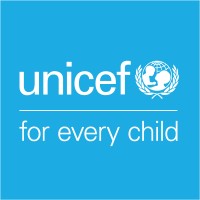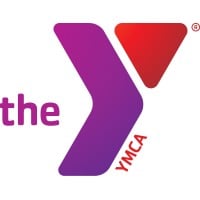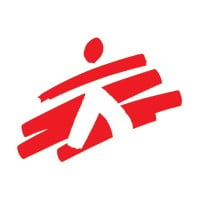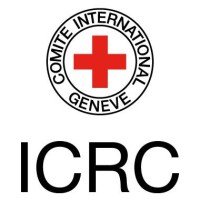Company Details
unicef
44,786
5,309,863
8135
unicef.org
0
UNI_2894943
In-progress

UNICEF Company CyberSecurity Posture
unicef.orgUNICEF works in some of the world’s toughest places, to reach the world’s most disadvantaged children. To save their lives. To defend their rights. To help them fulfill their potential. Across 190 countries and territories, we work for every child, everywhere, every day, to build a better world for everyone. And we never give up.
Company Details
unicef
44,786
5,309,863
8135
unicef.org
0
UNI_2894943
In-progress
Between 800 and 849

 UNICEF Global Score (TPRM)
UNICEF Global Score (TPRM)XXXX

Description: The children's agency of the United Nations, UNICEF, unintentionally exposed the private information of 1000 of Agora users who use its online learning platform. Nearly 20,000 Agora users received an email with the personal information of 8,253 individuals registered for courses on immunisation. This unintentional data leak resulted from a mistake made by an internal user running a report. The names, email addresses, places of employment, genders, organisations, names of supervisors, and types of contracts of the individuals may be among the personal information inadvertently disclosed.


No incidents recorded for UNICEF in 2025.
No incidents recorded for UNICEF in 2025.
No incidents recorded for UNICEF in 2025.
UNICEF cyber incidents detection timeline including parent company and subsidiaries

UNICEF works in some of the world’s toughest places, to reach the world’s most disadvantaged children. To save their lives. To defend their rights. To help them fulfill their potential. Across 190 countries and territories, we work for every child, everywhere, every day, to build a better world for everyone. And we never give up.


We support peace and prosperity by building connections, understanding and trust between people in the UK and countries worldwide. We uniquely combine the UK’s deep expertise in arts and culture, education and the English language, our global presence and relationships in over 100 countries, our un

YMCA of the USA is the national resource office for the nation's YMCAs. Located in Chicago, IL, YMCA of the USA exists to serve YMCAs. To address the specific needs of communities, each YMCA is an independent organization, autonomous and separate from YMCA of the USA. They are required by the nation

Médecins Sans Frontières (MSF) is an international, independent, medical humanitarian organisation working to provide medical assistance to people affected by conflict, epidemics, disasters, or exclusion from healthcare. Since our founding in 1971, we’ve grown to a global movement delivering human
The International Rescue Committee responds to the world’s worst humanitarian crises and help people to survive, recover, and gain control of their future. Founded in 1933 at the request of Albert Einstein, the IRC offers lifesaving care and life-changing assistance to refugees and displaced peopl

AIESEC develops leadership among youth aged 18 to 30 and contributes to strengthening the global employability market by providing an end-to-end international talent recruitment solution for Enterprises, NGOs, and Start-ups. AIESEC is the world's largest youth-run organization developing the leader

Established in 1863, the International Committee of the Red Cross (ICRC) works worldwide to provide humanitarian help for people affected by conflict and armed violence and to promote the laws that protect victims of war. An independent and neutral organization, its mandate stems essentially from th

Every day, we help millions of people to make journeys across London: By Tube, bus, tram, car, bike – and more. People don’t associate us with journeys by river, on foot or via the air, but we help with that, too. Getting people to where they need to go has been our business for over 100 years, and
The Salvation Army is the nation's largest direct provider of social services. Annually, we help millions overcome poverty, addiction, and spiritual and economic hardships by preaching the gospel of Jesus Christ and meeting human needs in His name without discrimination in nearly every zip code.

World Vision is the largest child-focused private charity in the world. Our 33,000+ staff members working in nearly 100 countries have united with our incredible supporters to impact the lives of over 200 million vulnerable children by tackling the root causes of poverty. Through World Vision every
.png)
The United Nations Children's Fund (UNICEF) has called for urgent, large-scale investment in digital skills to prepare Nigeria's growing...
The Ministry of Communications and Innovation, in collaboration with industry stakeholders, led a series of initiatives to promote online...
Lucknow: Unicef and Dove have partnered to boost self-confidence and life skills among adolescent girls in India.
A recent, highly coordinated cyberattack, codenamed “PhantomCaptcha,” targeted several major humanitarian and government groups supporting...
In summer 2023, Narine participated in UNICEF's “Gamechangers - Girls for Girls” project, designed to provide young girls in rural Armenia...
The Cyber Security Authority on Friday held a stakeholders' engagement to discuss efficient measures to protect children with disabilities...
In an age when a child's first footprint may be digital, how do we ensure children's safety from day one?
Yerevan, August 27, 2025. UNICEF and CyberHUB-AM have officially launched the CyberChat platform, Armenia's first online support and...
Dr. Antwi-Boasiako is a cybersecurity expert who has worked in the public and private sectors for more than a decade.

Explore insights on cybersecurity incidents, risk posture, and Rankiteo's assessments.
The official website of UNICEF is https://www.unicef.org/.
According to Rankiteo, UNICEF’s AI-generated cybersecurity score is 827, reflecting their Good security posture.
According to Rankiteo, UNICEF currently holds 0 security badges, indicating that no recognized compliance certifications are currently verified for the organization.
According to Rankiteo, UNICEF is not certified under SOC 2 Type 1.
According to Rankiteo, UNICEF does not hold a SOC 2 Type 2 certification.
According to Rankiteo, UNICEF is not listed as GDPR compliant.
According to Rankiteo, UNICEF does not currently maintain PCI DSS compliance.
According to Rankiteo, UNICEF is not compliant with HIPAA regulations.
According to Rankiteo,UNICEF is not certified under ISO 27001, indicating the absence of a formally recognized information security management framework.
UNICEF operates primarily in the Non-profit Organizations industry.
UNICEF employs approximately 44,786 people worldwide.
UNICEF presently has no subsidiaries across any sectors.
UNICEF’s official LinkedIn profile has approximately 5,309,863 followers.
UNICEF is classified under the NAICS code 8135, which corresponds to Others.
No, UNICEF does not have a profile on Crunchbase.
Yes, UNICEF maintains an official LinkedIn profile, which is actively utilized for branding and talent engagement, which can be accessed here: https://www.linkedin.com/company/unicef.
As of November 27, 2025, Rankiteo reports that UNICEF has experienced 1 cybersecurity incidents.
UNICEF has an estimated 20,200 peer or competitor companies worldwide.
Incident Types: The types of cybersecurity incidents that have occurred include Data Leak.
Title: UNICEF Agora Platform Data Leak
Description: UNICEF unintentionally exposed the private information of 8,253 Agora users who use its online learning platform. Nearly 20,000 Agora users received an email with the personal information of individuals registered for courses on immunisation. This unintentional data leak resulted from a mistake made by an internal user running a report. The names, email addresses, places of employment, genders, organisations, names of supervisors, and types of contracts of the individuals may be among the personal information inadvertently disclosed.
Type: Data Leak
Attack Vector: Misconfigured Email
Vulnerability Exploited: Human Error
Common Attack Types: The most common types of attacks the company has faced is Data Leak.

Data Compromised: Names, Email addresses, Places of employment, Genders, Organisations, Names of supervisors, Types of contracts
Systems Affected: Agora online learning platform
Commonly Compromised Data Types: The types of data most commonly compromised in incidents are Personal Information and .

Entity Name: UNICEF
Entity Type: Non-profit Organization
Industry: Children's Aid
Location: Global
Customers Affected: 8,253 individuals registered for immunisation courses

Type of Data Compromised: Personal information
Number of Records Exposed: 8,253
Sensitivity of Data: High
Personally Identifiable Information: NamesEmail addressesPlaces of employmentGendersOrganisationsNames of supervisorsTypes of contracts

Root Causes: Human Error
Most Significant Data Compromised: The most significant data compromised in an incident were Names, Email addresses, Places of employment, Genders, Organisations, Names of supervisors, Types of contracts and .
Most Significant System Affected: The most significant system affected in an incident was Agora online learning platform.
Most Sensitive Data Compromised: The most sensitive data compromised in a breach were Names, Organisations, Email addresses, Genders, Places of employment, Types of contracts and Names of supervisors.
Number of Records Exposed in Most Significant Breach: The number of records exposed in the most significant breach was 8.3K.
.png)
Angular is a development platform for building mobile and desktop web applications using TypeScript/JavaScript and other languages. Prior to versions 19.2.16, 20.3.14, and 21.0.1, there is a XSRF token leakage via protocol-relative URLs in angular HTTP clients. The vulnerability is a Credential Leak by App Logic that leads to the unauthorized disclosure of the Cross-Site Request Forgery (XSRF) token to an attacker-controlled domain. Angular's HttpClient has a built-in XSRF protection mechanism that works by checking if a request URL starts with a protocol (http:// or https://) to determine if it is cross-origin. If the URL starts with protocol-relative URL (//), it is incorrectly treated as a same-origin request, and the XSRF token is automatically added to the X-XSRF-TOKEN header. This issue has been patched in versions 19.2.16, 20.3.14, and 21.0.1. A workaround for this issue involves avoiding using protocol-relative URLs (URLs starting with //) in HttpClient requests. All backend communication URLs should be hardcoded as relative paths (starting with a single /) or fully qualified, trusted absolute URLs.
Forge (also called `node-forge`) is a native implementation of Transport Layer Security in JavaScript. An Uncontrolled Recursion vulnerability in node-forge versions 1.3.1 and below enables remote, unauthenticated attackers to craft deep ASN.1 structures that trigger unbounded recursive parsing. This leads to a Denial-of-Service (DoS) via stack exhaustion when parsing untrusted DER inputs. This issue has been patched in version 1.3.2.
Forge (also called `node-forge`) is a native implementation of Transport Layer Security in JavaScript. An Integer Overflow vulnerability in node-forge versions 1.3.1 and below enables remote, unauthenticated attackers to craft ASN.1 structures containing OIDs with oversized arcs. These arcs may be decoded as smaller, trusted OIDs due to 32-bit bitwise truncation, enabling the bypass of downstream OID-based security decisions. This issue has been patched in version 1.3.2.
Suricata is a network IDS, IPS and NSM engine developed by the OISF (Open Information Security Foundation) and the Suricata community. Prior to versions 7.0.13 and 8.0.2, working with large buffers in Lua scripts can lead to a stack overflow. Users of Lua rules and output scripts may be affected when working with large buffers. This includes a rule passing a large buffer to a Lua script. This issue has been patched in versions 7.0.13 and 8.0.2. A workaround for this issue involves disabling Lua rules and output scripts, or making sure limits, such as stream.depth.reassembly and HTTP response body limits (response-body-limit), are set to less than half the stack size.
Suricata is a network IDS, IPS and NSM engine developed by the OISF (Open Information Security Foundation) and the Suricata community. In versions from 8.0.0 to before 8.0.2, a NULL dereference can occur when the entropy keyword is used in conjunction with base64_data. This issue has been patched in version 8.0.2. A workaround involves disabling rules that use entropy in conjunction with base64_data.

Get company history
















Every week, Rankiteo analyzes billions of signals to give organizations a sharper, faster view of emerging risks. With deeper, more actionable intelligence at their fingertips, security teams can outpace threat actors, respond instantly to Zero-Day attacks, and dramatically shrink their risk exposure window.
Identify exposed access points, detect misconfigured SSL certificates, and uncover vulnerabilities across the network infrastructure.
Gain visibility into the software components used within an organization to detect vulnerabilities, manage risk, and ensure supply chain security.
Monitor and manage all IT assets and their configurations to ensure accurate, real-time visibility across the company's technology environment.
Leverage real-time insights on active threats, malware campaigns, and emerging vulnerabilities to proactively defend against evolving cyberattacks.




